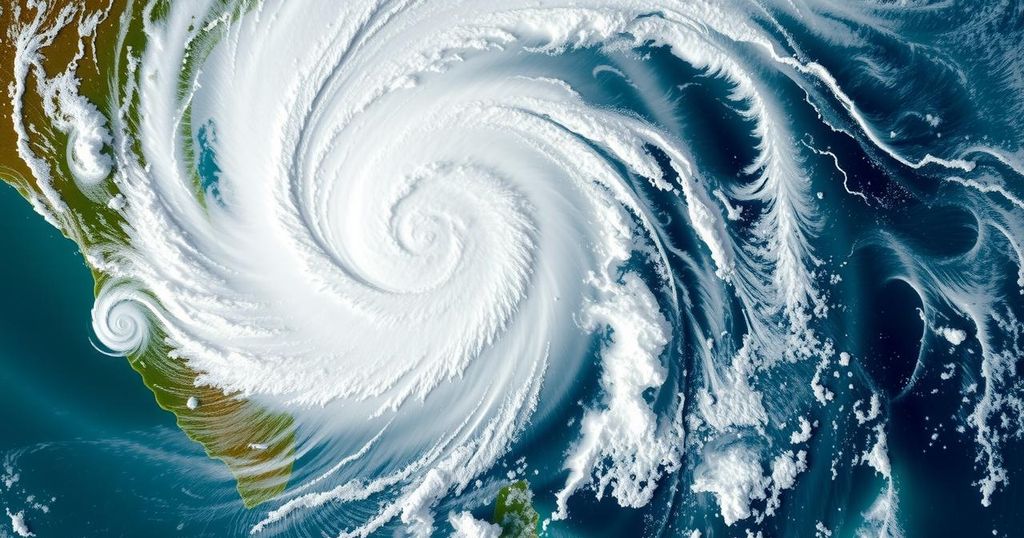Tropical Cyclone Dikeledi’s Devastating Impact on Madagascar and Mozambique

Tropical Cyclone Dikeledi struck Mozambique on January 13, 2025, after killing three people and damaging hundreds of homes in Madagascar. With winds reaching 160 km/h, the cyclone is causing significant disruptions and flooding in Nampula and Zambezia provinces. Authorities have issued Red cyclone warnings and delayed school reopenings.
Tropical Cyclone Dikeledi made its presence felt in Mozambique on January 13, 2025, following a deadly path through Madagascar, where it resulted in three fatalities and extensive damage. After making landfall in Madagascar’s Antsiranana province on January 11 with winds reaching 155 km/h, over 370 homes were reported damaged, alongside significant harm to schools and infrastructure, affecting over 5,210 individuals.
Subsequent to its transit over northern Madagascar, Dikeledi influenced regions southeast of Mayotte, where approximately 14,500 evacuees sought refuge in emergency shelters due to heightened storm impacts. On January 13, the cyclone brushed the Mozambican coast near Nacala, Nampula Province, with wind speeds escalating to 160 km/h. This inclement weather prompted the Mozambique National Institute of Meteorology (INAM) to issue a Red cyclone warning, predicting heavy rainfall that could exceed 200 mm within a 24-hour span, alongside thunderstorms and strong gusts.
Local authorities enforced delays in school reopenings across affected areas until at least January 20. The cyclone’s repercussions have led to severe disruptions, particularly in Nampula and Zambezia provinces, where localized flooding continues to pose challenges. Flights at Dzaoudzi-Pamandzi International Airport were canceled, with plans for gradual resumption following the severe weather events.
The impact of Tropical Cyclone Dikeledi reflects a growing concern regarding extreme weather events in the Indian Ocean region, exacerbated by climate change. Madagascar and Mozambique, located in a cyclone-prone area, frequently encounter such storms, which contribute to significant humanitarian crises, infrastructural damage, and loss of life. The aftermath of Cyclone Dikeledi reiterates the need for enhanced preparedness and response strategies to mitigate the adverse effects of cyclonic activities in future occurrences.
In summary, Tropical Cyclone Dikeledi has had a devastating impact on both Madagascar and Mozambique, resulting in loss of life, significant infrastructural damage, and widespread dislocation of communities. The varying effects across regions highlight the necessity for continuous monitoring and preparedness in response to increasingly volatile weather patterns due to climate change. Local authorities and international organizations are urged to employ effective strategies to protect and assist those affected.
Original Source: watchers.news





